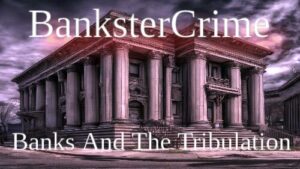“A faithful man will be richly blessed, but one eager to get rich will not go unpunished.” This speaks against the “get-rich-quick” mentality. Looking at investment as a long-term plan for the future is good planning, but trying to make a fortune overnight is not.
We really should focus on the signals emanating from bond markets. Forget the current political madness – yesterday saw a number of key moments for bond markets: UK Chancellor Sajid Javid hitting the spend button in the UK (whether it actually happens is a moot point), another $30 bln new issuance day in the US, BAWAG launching a 10-year negative yield Covered Bond, Spain about to launch a 50 year issue at a smidge over nothing, and Christine Lagarde lecturing the European Parliament about the need for Fiscal Policy initiatives.
It really feels like we are at something of a nexus for bonds and fiscal spending. Central Bankers and politicians are tinkering with new ideas (ie: old ones rehashed) about Monetary policy – because nothing they tried re QE and zero rates really worked the last 10-years. I can’t help but feel it’s like something out of The Walking Dead – the Neo-Keynesians have suddenly risen and now stalk the Earth. (Queue Thriller on the turntable…)
Politicians now see low-interest rates as a phenomenal opportunity to sort out the bleak mess of the last 10-years of Austerity driven under-investment and spend economies back into growth. It looks attractive. And, if they’d started 10-years ago.. then we’d probably not be where we are today…
Of course, corporates would be mad not to take advantage of current ultra-low rates to borrow. But what are they going to spend the money on? More distorting stock buy-backs and dividend recharges back to private equity owners? Should investors be worried about the growing leverage? If the crunch comes – well, 5% of issuers might default, but the rest will be fine… ish. Meanwhile, ultra-low rates are great for stocks. Not because companies are inherently more profitable, but largely because low rates make stocks relatively more attractive compared to low-yielding bonds, and encourage corporate buy-backs which further push up prices!
The problem is… the global bond market is now in excess of $115 trillion (a very very big number) and it’s grown dramatically since the 2008 crisis. It’s just about tripled according to one set of numbers I looked at. When the bond market crunch comes, let’s assume there will be some very very large losses – and all the systemic bad consequences that will go with that. Worry less about how index funds or ETFs will trigger the next crisis, but what happens when bond markets collapse on a few points of interest rate rises, triggering massive defaults, while chronic illiquidity creates the biggest value trap of all time. Ouch.
Argentina just got caught in the jaws of the classic repay in dollars trap – again. Just a few years ago we were expecting Spain to go bust on the back of its borrowings in someone else’s currency – the Euro. Now its about to launch a half-century bond! In a currency it has absolutely no real control over!
Next week markets expect the ECB to further ease rates into negative territory – where most bonds are already priced – and even to restart its bond-buying program. Yet an increasing number of bankers and theorists are warning it makes little sense. I’ve said it myself many times: years of lower rates to kick start economies hasn’t kickstarted growth but has simply distorted financial asset prices (stocks and bonds) in very dangerous ways. Under QE the rich have got richer, and the poor remain fortunate to hold badly paid jobs. Monetary experimentation has proved about as effective as pushing a hefty rock uphill with a wet length of wool.
I will go as far as to opine Central Banks are no longer a solution – they have become the Risk. If they deliver more easing they will simply further distort prices in already tortured and bubbilicous financial asset markets. If they don’t ease, then markets will throw volatile tantrums, forcing intervention. There is nothing healthy about the current mutual dependency between Central Banks and Markets. Time for a purge..
When even the CEO of Deutsche Bank is warning about the dangers of negative rates then is must be obvious to the ECB: “Few economists believe cheaper money on this level will do anything.” He went on to say central banks have few options to deal with a real crisis. (No Sh*t Sherlock award on its way to the Towers in Frankfurt.) When Germany’s big banks are as rubber-ducked as Commerz and Deutsche, you have to wonder how close the next banking crisis is. (That’s a rhetorical question. Let me put it another way: name me a single European bank south of Schleswig-Holstein you really trust?) But what else can central banks do? Their cupboards are bare.
It’s time for the government to step up and take responsibility – hence the growing fascination with a return to fiscal boosts and the attractions of New Monetary Theory. It’s just another iteration of Keynesian spending policies – and we know how these usually end… with panic about debt loads.
Christine Lagarde laid out her stall as a new ECB head yesterday in Brussels. As part of her confirmation process, she told the European Parliament low deficit successful countries should be playing the fiscal spending card to power Europe out of downturn – that’s a clear challenge for the Rich North to effectively end the current “stability pact” budget rules, and agree on the bailout of the Poor South. Lagarde is doing as expected – showing her colors as Macron’s girl. Good luck selling the concept to the Burgers of Dresden.
Sadly, instead of answering deeply penetrating questions from the parliament on how to restore growth, establish a proper budget and energize recovery across the Eurozone, she blathered on about combating populism and how to address climate change as a macro-economic priority – favoring green bonds in any new asset purchase program. Europe is doomed.
There may be a sweet spot – Spain is doing rather well. Its politics rank 3rd in the European disaster league table (Behind the UK and Italy), but the fact Spain is growing as a result of naked domestic consumption is a great thing. Government-mandated pay hikes boosted consumer spending (including a massive 20% hike in minimum wages). Stuff Austerity! It worked. Helicopters anyone? But Spain’s fiscal boost is probably unsustainable – the nation still has to address the fundamental problem: not just paying people more, but actually getting them to produce more to justify it (a long term fundamental structural reform issue – boosting productivity!)
This is an issue for all governments to ponder before they embark on a fiscal spending binge: can spending on social and physical infrastructure projects pass the critical test of adding to productivity in a degree that beats the spending? That’s a pretty simple test – if making education free and better costs billions but adds trillions to the nation’s GDP, then do it! If building a new railway costs trillions but adds a few million to GDP, then forget it.
However, I fear the penny/cent may have dropped too late. We may already be at or near “Peak Bond”. Politicians are waking up to fiscal spending just as the cycle is about to turn (discounting the looming recession). Some countries, like the UK and US, maintain superbly liquid government bond markets, but Europe’s is fractionalized and split and too dependent on the ECB’s formula. If rates turn or a crisis develops – it may already be too late for some countries to spend our way out. Source
StevieRay Hansen
Editor, Bankster Crime
The people spreading concrete information on the dangers of globalism are accomplishing far more than those sitting around buying bitcoin or passing around Q-cult nonsense.
MY MISSION IS NOT TO CONVINCE YOU, ONLY TO INFORM…
#Fraud #Banks #Money #Corruption #Bankers #Central Banks
“Have I therefore become your enemy by telling you the truth?”






